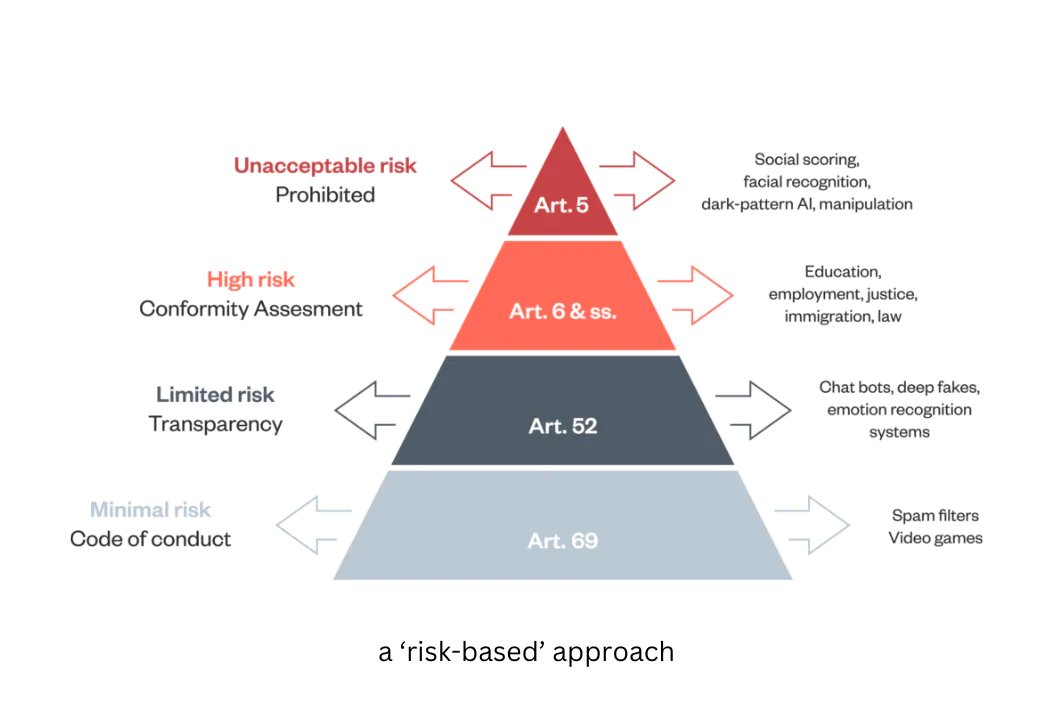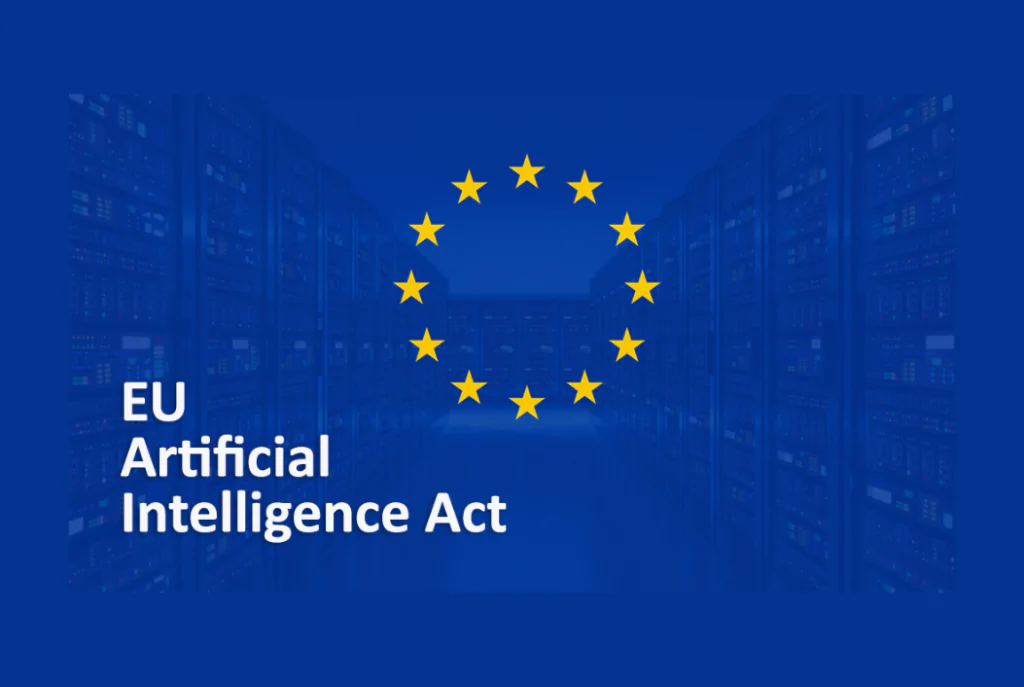Introduction
The Artificial Intelligence Act (AIA) stands as a significant piece of legislation designed to regulate and govern the rapidly evolving field of artificial intelligence (AI). This blog post delves into the multifaceted impact of the AIA, exploring its implications on ethics, economy, society, and the challenges it presents in terms of regulation and compliance.
Brief Overview of the Artificial Intelligence Act
The AIA aims to address the ethical challenges and potential risks associated with the deployment of AI technologies. By setting out clear guidelines and obligations for both developers and users, the legislation seeks to ensure that AI is developed and used responsibly.
Purpose of the Legislation
The primary objective of the AIA is to promote innovation while safeguarding fundamental rights and ensuring a level playing field for businesses. It seeks to strike a balance between fostering AI advancements and protecting individuals from harm.
Scope of the Impact
The impact of the AIA extends beyond national borders, given the global nature of AI technologies. It sets standards that could influence the development and deployment of AI systems worldwide.
Understanding the Key Objectives of the Artificial Intelligence Act
The key objectives of the AIA include promoting transparency, accountability, and human oversight in AI systems. It also aims to tackle issues related to bias, discrimination, and potential threats to data privacy.
Structure: a ‘risk-based’ approach
The Act divides artificial intelligence (AI) into four risk categories according to a system’s intended use. “High-risk AI” is the category that the Act is most concerned with out of these four.

Ethical Implications
The ethical implications of the AIA are profound and far-reaching, touching upon various aspects of AI deployment.
Data Privacy Concerns
One of the critical ethical considerations surrounding AI is data privacy. The AIA lays down provisions to ensure that personal data is adequately protected when used in AI systems, safeguarding individuals’ privacy rights.
Bias and Discrimination
AI systems have the potential to perpetuate bias and discrimination if not properly regulated. The AIA mandates that developers address bias issues and ensure fairness in AI decision-making processes.
Transparency and Accountability
Transparency and accountability are essential pillars of ethical AI. The AIA requires that AI systems are explainable and that individuals can understand the rationale behind AI-generated decisions.
Economic Impacts

The implementation of the AIA is expected to have significant economic ramifications, altering the labor market and creating new opportunities for growth.
1. Labor Market Disruption
As AI technologies advance, certain job roles may become obsolete, leading to disruptions in the labor market. However, new job opportunities may also emerge, requiring a shift in skill sets and training.
2. Job Creation Opportunities
The development and deployment of AI systems can create new job roles in fields such as AI ethics, data protection, and AI system auditing. These roles are essential for ensuring compliance with the AIA and maintaining ethical standards in AI technologies.
3. Revenue Generation Potential
The AIA could enhance consumer trust in AI technologies, leading to increased adoption and revenue generation for businesses that comply with the legislation.
Social Effects
The social effects of the AIA are diverse, impacting accessibility, education, and cultural norms in society.
- Accessibility to AI Technologies
The AIA aims to promote accessibility to AI technologies while ensuring that they are developed in a manner that is safe and inclusive for all individuals and communities.
- Education and Training Requirements
To fully benefit from AI technologies and comply with the AIA, individuals and businesses may need to invest in education and training programs to enhance their understanding and competency in AI systems.
- Cultural Shifts in Society
The deployment of AI technologies under the AIA could lead to cultural shifts in society, influencing how individuals interact with technology and shaping societal norms and behaviors.
Regulatory Challenges
Despite its promise, the AIA poses regulatory challenges that need to be addressed to ensure its successful implementation.
- Compliance Requirements
Businesses using AI technologies must comply with the stringent requirements set out in the AIA to avoid penalties and legal repercussions.
- Enforcement Mechanisms
Effective enforcement mechanisms are crucial to ensuring that the provisions of the AIA are upheld. This may involve monitoring, auditing, and reporting on AI systems to ensure compliance.
-
International Cooperation
Given the global nature of AI technologies, international cooperation is essential for enforcing the AIA and harmonizing regulations across jurisdictions.
Explore More about Artificial Intelligence
Conclusion
The Artificial Intelligence Act presents a unique opportunity to address the ethical, economic, and social implications of AI technology. However, it also poses regulatory challenges that must be navigated to ensure its effective implementation. Understanding these impacts is crucial for policymakers, businesses, and individuals alike.
FAQs
- What are the key provisions of the Artificial Intelligence Act?
The key provisions of the Artificial Intelligence Act may include regulations related to transparency, accountability, and safety of AI systems. This could involve requirements for explaining AI decisions, ensuring human oversight, and implementing safeguards to prevent harm caused by AI applications.
- How will the legislation affect businesses using AI technology?
The legislation may affect businesses using AI technology by imposing compliance burdens such as ensuring transparency in AI decision-making processes, adhering to safety standards, and potentially facing penalties for non-compliance. It may also spur innovation in AI ethics and responsible AI development practices.
- What steps can be taken to mitigate the negative consequences of the Act?
Businesses can take steps to mitigate the negative consequences of the Artificial Intelligence Act by investing in AI ethics and compliance training, implementing robust AI governance frameworks, conducting thorough risk assessments, and collaborating with regulators to shape policy that balances innovation and regulation.
- How can individuals ensure their data privacy rights are protected under the legislation?
Individuals can ensure their data privacy rights are protected under the legislation by being informed about how their data is used by AI systems, exercising their rights to access and control their data, and supporting initiatives that advocate for stronger data protection regulations.
- What role does international collaboration play in enforcing the Artificial Intelligence Act?
International collaboration plays a crucial role in enforcing the Artificial Intelligence Act by facilitating information sharing, harmonizing standards and regulations, and coordinating efforts to address cross-border challenges related to AI governance, ethics, and enforcement. This collaboration helps ensure consistent implementation and enforcement of AI regulations across different jurisdictions.


